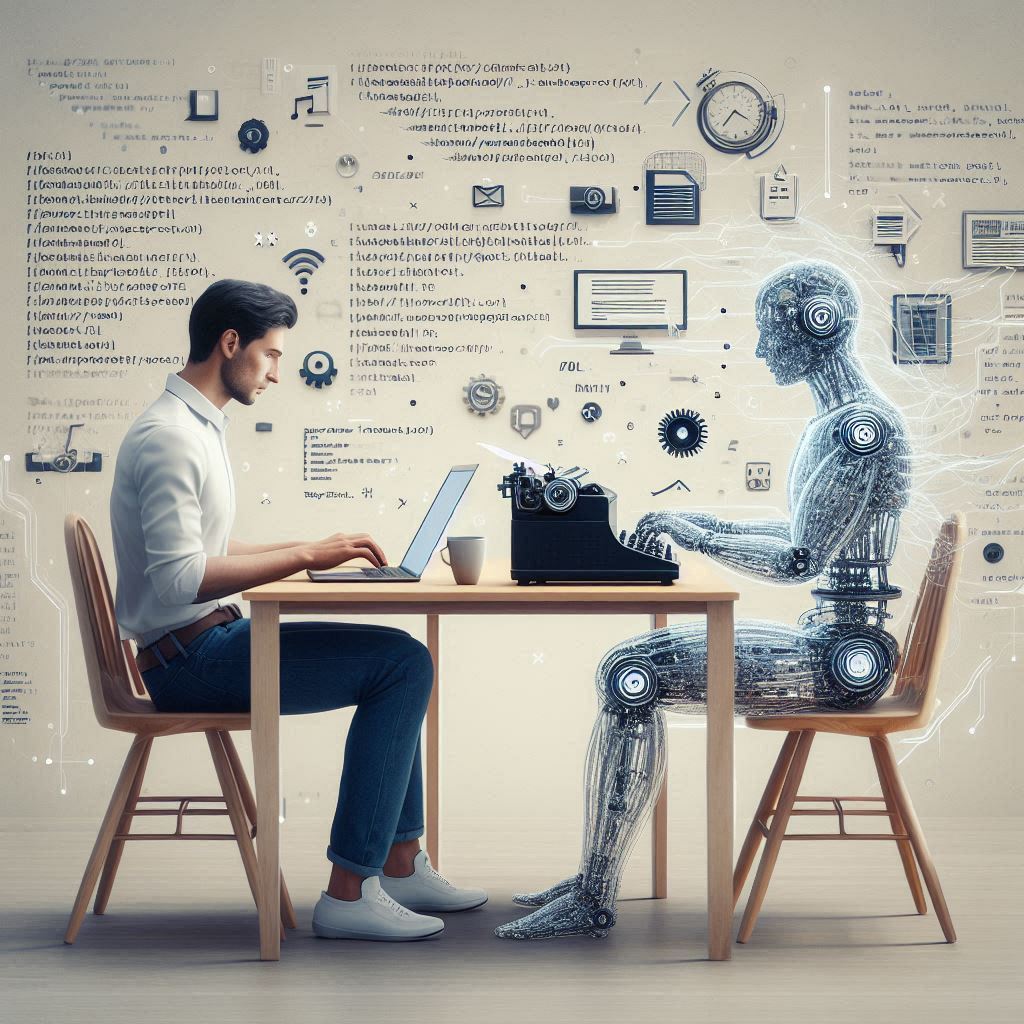
As AI radically changes industries in this time and age, it did not leave the world of content creation behind. The onset of AI writers raises debate amongst professionals, businesses, and readers alike: who creates better content, AI writers or human writers? This shall view each of the strengths and limitations as AI goes on to evolve in understanding the future of content creation.
Emergence of AI Writers
AI writers are software programs that generate text using input data, algorithms, and natural language processing. These AI-powered writing instruments have evolved significantly over the last couple of years—from churning out basic blog posts to very complex, masterly articles. Such tools from GPT-4, Jasper, and Copy.ai remain very popular with marketers, businesses, and at times even individual content creators because of their overall efficacy and ability to turn out content much faster than usual.
Advantages of AI Writers
1. Speed and Efficiency: Probably one of the greatest advantages of AI writers is speed. They can really generate content in very short periods compared to when a human writer would produce the same. This comes in handy, especially for businesses that require high volumes of content regularly.
2. Cost-Effectiveness: The AI writer reduces the cost of content production by waiving off the need for several human writers, thus saving the cost of projects in this area. This could be a real game-changer for startups and small business owners looking to utilize their resources elsewhere.
3. Consistency and Scalability: AI writers can provide content that is similar in tone and style, thus making it easier to carry out a brand's voice across different platforms. Besides, AI can scale content creation with much ease and handle more significant tasks without compromising on quality.
4. Data-driven content: As AI writers are capable of analyzing a huge amount of data in less time, they are able to create SEO-optimized content and especially target audiences. This data-driven approach ensures the relevance of the content and aligns with the current trends.
Limitations of AI Writers
1. Lack of Creativity: Whereas AI can be used to create content around patterns and data, it still lacks the creative intuition possessed by a human writer. It becomes hard to generate content that would elicit emotions from readers or express complex ideas in a subtle way.
2. Lack of Contextual Understanding: AI writers miss the full understanding of the context behind a topic, delivering content that is usually factually correct but rather shallow. In this regard, this can turn out to be a major disadvantage while addressing complex or sensitive topics.
3. Ethical Concerns: AI in content creation gives way to concerns involving originality, plagiarism, and likelihood of dissemination of misinformation. AI content generation can invariably copy existing work or produce biased information on the basis of data it was trained on.
4. Personalization: AI writers can produce generic content, lacking in that personal touch that human writers bring forth. This is very important in attachment creation with readers at a deep level and has an impact on engagement and loyalty.
The Strengths of Human Writers
1. Creativity and Originality: Human beings are brilliant creators, authoring completely new material that is engaging. They can write stories or take completely different angles to express ideas through writing in ways AI cannot.
2. Emotional Connection: Great human writers are able to fill their content with emotion, compassion, and personality to which the reader can relate. Emotional connections are important for content meant for inspiration, persuasion, or entertainment purposes.
3. Contextual Insight: Human writers understand the broader context of a topic and draw from this experience, knowledge, and cultural awareness to come up with material that is not only informative but full of insight and relevance.
4. Adaptability: Human writers can adapt their writing style for different audiences, tones, and formats. Be it a formal report, a casual blog post, or even a creative story, human writers are able to adjust their approach towards what is called for by the particular task.
Limitations of Human Writers
1. Time-Consuming: It is time-consuming for a human writer, which most of the time causes delays, especially on vast volumes of content. In comparison with AI, human beings need breaks, time for research, and time for making revisions.
2. Subjectivity: Human writers bring along their own point of view and bias into the content they create. While this often is a strength in writing, sometimes it can result in less objective material or material that may be skewed in some way.
3. Inconsistency: It is difficult for a human writer to maintain the exact tone and style across several pieces of content. This inconsistency may be a problem with brands who need to communicate in one voice.
4. Higher Costs: Quality human writers are costly, especially in scenarios where special content is required for a business or where the deadlines are quite short. This therefore creates the limit on the amount of content generated within a budget.
Final Thoughts: Who Does Better Content?
The answer to whether AI writers or human writers write better content is not yes or no. This largely depends on the nature of the content, what purpose it serves, and who the target audience is.
Routine, Data-Driven Content: AI writers are great for jobs in large volumes, routinized, uniform, search engine optimization, and low cost. For this reason, they prove good for use for state descriptions, data analysis reports, and social media posts.
Creative, Contextual, and Emotional Content: Human writers have no competition where the content needs creativity, emotional depth, and subtle subject understanding. Opinionated work, creative writing, and deep topics that require research and thinking for themselves are areas that clearly remain in the human domain.
The Future of Content Creation
Probably that the hybrid approach is going to make way for future content creation: maximizing the strengths of both AI and human writers. AI should take responsibility for very repetitive, data-driven work, so that more human writers can focus on quality and original content generation that requires creativity and critical thinking.
As technology advances further, most likely AI writers will be more sophisticated and close the gap farther between machine-generated and human-generated content. Yet, creativity, empathy, and insight are some of the peculiar qualities that human writers bring to the table, for which there shall always be demand.

